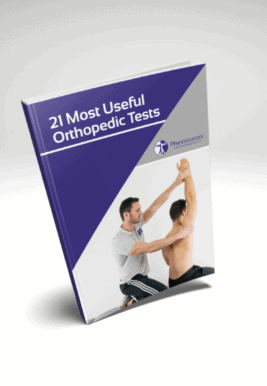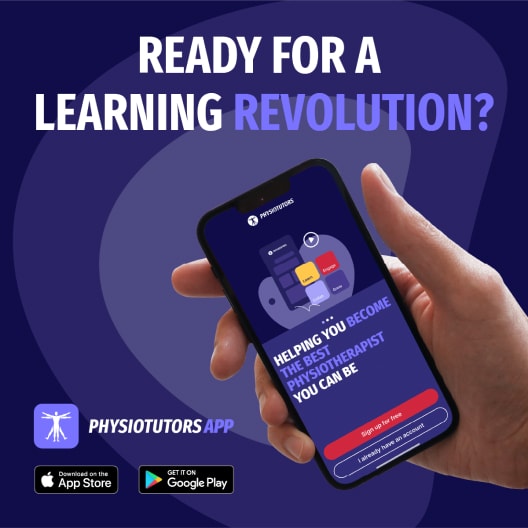Learn
Gagey Test | Inferior Shoulder Instability Assessment
Gagey et al. (2001) examined passive abduction of the glenohumeral joint in 100 cadavers. Their anatomical and clinical findings showed that passive abduction occurs within the glenohumeral joint only and is controlled by the inferior glenohumeral ligament. In 95% of cases, passive glenohumeral abduction of both shoulders in normal subjects had a constant value. In 85% with instability, the passive range of motion in the direction of abduction exceeded 105 degrees indicating laxity of the inferior glenohumeral ligament.
Eshoj et al. (2018) found substantial inter-rater reliability for the Gagey test of 0.73. So far we are not aware of any studies on the diagnostic accuracy of this test, which is why we give it a questionable clinical value in practice.
To perform the Gagey test, the patient is sitting upright.
The shoulder girdle is stabilized on the clavicle and scapula by the examiner to prevent the shoulder girdle from elevating while the individual’s arm is passively moved into end range in horizontal abduction.
You can use a mirror in front of the individual to better evaluate the shoulder abduction angle.
This test is rated as positive with shoulder abduction exceeding 105°.
A positive test is indicative of laxity of the inferior glenohumeral ligament.
21 OF THE MOST USEFUL ORTHOPAEDIC TESTS IN CLINICAL PRACTICE

Other common tests to assess shoulder instability are:
- Sulcus Sign (Inferior Shoulder Instability)
- Apprehension Test (Anterior Shoulder Instability)
- Relocation Test (Anterior Shoulder Instability)
- Release / Surprise Test (Anterior Shoulder Instability)
- Load and Shift Test (Anterior + Posterior Instability)
References
Like what you’re learning?
BUY THE FULL PHYSIOTUTORS ASSESSMENT BOOK
- 600+ Pages e-Book
- Interactive Content (Direct Video Demonstration, PubMed articles)
- Statistical Values for all Special Tests from the latest research
- Available in 🇬🇧 🇩🇪 🇫🇷 🇪🇸 🇮🇹 🇵🇹 🇹🇷
- And much more!








